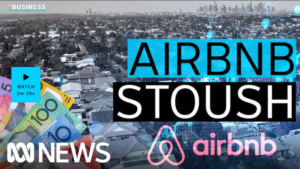Dear Editor,
Owners of short term rentals such as Airbnbs have been found to enjoy an 81% higher return in a national survey of 12,000 units. The findings in the “Airbnb: From a housing problem to solution” report are even more stark for Hepburn renters. Here STR owners were found to earn a 150% premium on what they could be earning from long term rentals.
The influence this has had on supply levels is significant. It is akin to losing 74% of new housing supply. Airbnbs were equivalent to 113% of the traditional rental market in the Shire.
Over a decade, it was found that Daylesford added 143 new homes to supply each year. For every 143 homes, only an effective 37 would reach the traditional housing market, such is the drive for Airbnbs. Usually a 4-5% premium will attract an investor into the market, so a 150% differential is literally opening the floodgates.
There are currently 300 homes found to be inactive by AirDNA in Hepburn. How could we get the majority of these to come back to the traditional housing market relatively quickly?
An Airbnb cap and trade system is a new strategy proposed by Grounded Community Land Trust Advocacy to curb the runaway growth in short term rentals. Even with the sales of many STRs in Daylesford, AIRDNA still finds a 6% growth in listings throughout Hepburn.
The Cap and Trade system would cap the number of Airbnbs, enforcing a licensing system. Every two years the number of licences would reduce 10%. The value of the licences would increase, providing a valuable funding source for cash strapped councils.
This step reduction over time would occur over eight to ten years, discounting active Airbnb numbers by 20 to 25%. The inactive sites would likely come back online for the rental market pretty quickly. Some would be sold to the home buying market, helping push prices back down from recent post-pandemic highs.
In year six, licensing revenue is likely to build to a point where half the premium STR owners enjoy over the rental market was charged in annual licensing fees. In this case, each Hepburn STR operator would pay a $12,565 annual licence. They would then only be earning that same amount above what they could on the rental market, down from a 150% to 56% premium. That sounds fair doesn’t it? Licensing would probably start at closer to $3,000 and build from there.
In the Hepburn Shire, there are around 1,400 short-term rentals but only 1,100 of them are active. So the beauty of the cap and trade system is that it works most effectively on marginal sites. Those excess 300 sites that aren’t so active would probably head back onto the market.
At year six, Council would be receiving $13.3m in licensing revenue. Ideally, this revenue would be channelled towards affordable housing. Best practice would see that council funds Community Land Trusts. These are perpetually affordable housing projects that lock any price growth to the reality of local wage growth. After 15 years, such a site would have paid most debt down, meaning they could fund an expansion of affordable housing. Key workers and single mums would be able to find permanent housing.
We have been trying to entice ethical landholders over the last 15 months, to find a land donation or pre-market sale if possible. Before us, the Safe Place group tried for six years. Council doesn’t have much suitable land left. It is very hard to find landholders who have the ability to not only think of the wider community, but also to have the financial headroom to do so.
There is something in the pipeline which may result in 40 new, affordable homes.
If we did get a reasonable Community Land Trust up, it would be well suited to deliver not only 40 out of 40 affordable homes, but to do this within a few years.
Looking at the Hygge development, The Village, they propose to hand over four single bedroom homes with no carport or eaves, minimising their commitment to affordability. We would need 100s of acres of rezoning to get to 40 affordable homes. It may take a decade for those 40 affordable homes to come to fruition. And the impact on sprawl? Pastures over Payments, please.
After writing this report, one wonders if the majority of $750K starter homes at Hygge will go straight to Airbnb?
Looking at it from a council perspective, an income stream of $13m could do wonders for local housing. It could do wonders for school support programs. It could do wonders for the council budget.
Before you say that’s unfair for Airbnb owners, they will still be taking home $31m in today’s prices. Let’s balance out a fairer future for all communities by reigning in the growth mentality of short term profits over a long term community.
Please attend our upcoming event: How to Channel Airbnb profits towards Community Land Trusts, Thurs July 4th, 6 – 7.15pm. Bookings: https://events.humanitix.com/airbnb-from-a-housing-problem-to-solution
And please watch the ABC video:
Karl Fitzgerald
Hepburn


